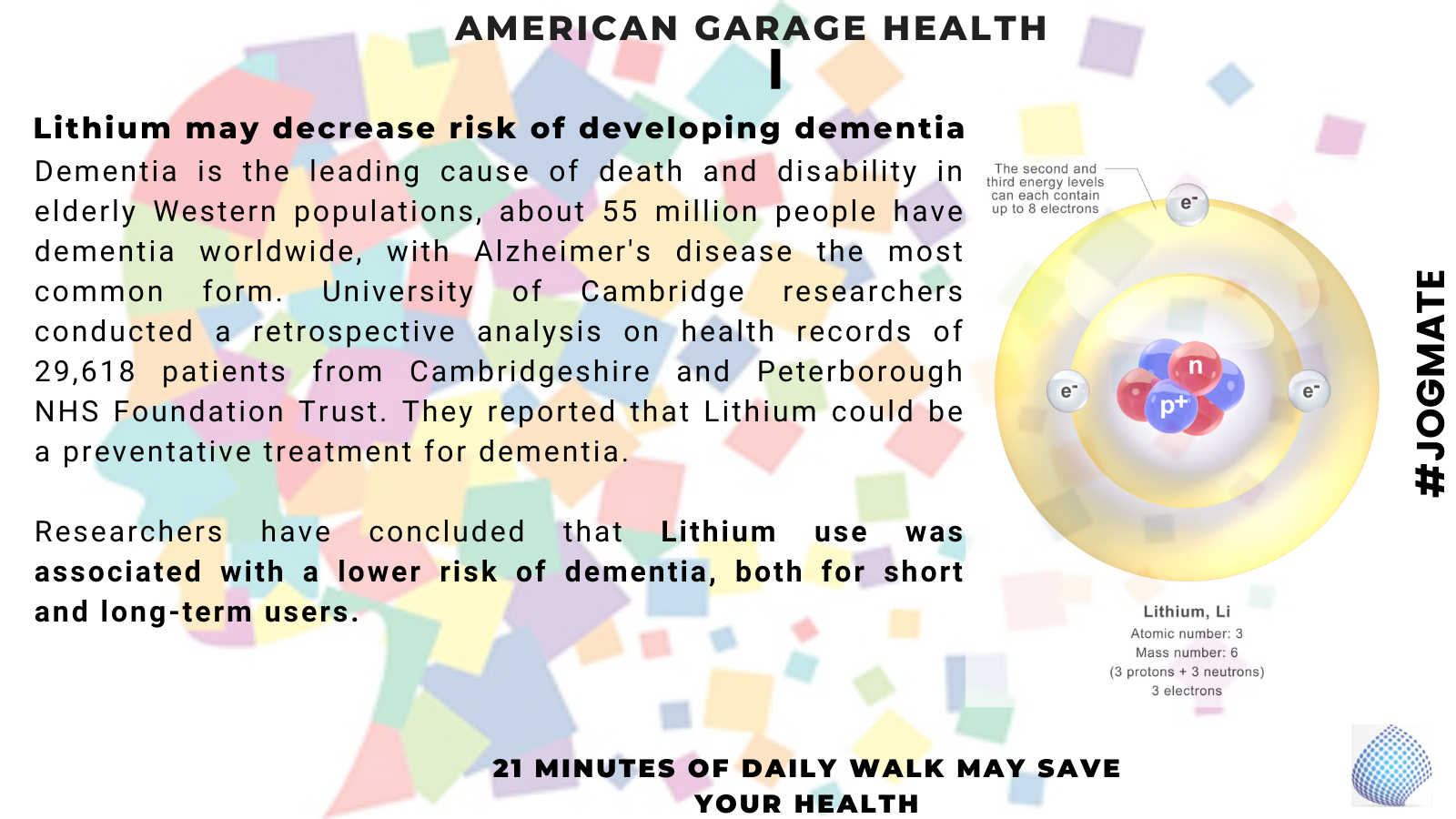
Dementia is one of the primary causes of mortality and handicap in ageing Western countries; approximately 55 million individuals worldwide suffer from dementia, the most common form being Alzheimer's disease.
In a group study done by researchers at the University of Cambridge, retrospective analysis was performed on the health data of 29,618 patients from the Cambridgeshire and Peterborough NHS Foundation Trust.
Lithium could be a prophylactic treatment for dementia, according to studies published in the journal PLoS Medicine, and could be advanced to major randomized controlled trials.
Between 2005 and 2019, the patients were all over 50 years old and used NHS mental health treatments. The patients had at least a one-year follow-up appointment and had not been diagnosed with mild cognitive impairment or dementia earlier.
Dr. Shanquan Chen said, “ it’s has been estimated that delaying onset by 5 years would reduce the prevalence and economic impact of dementia by 40%”.
Despite the fact that earlier studies have shown lithium as a potential treatment for those who have already been diagnosed with dementia or early cognitive impairment, due to the small sample size, it is unclear whether lithium can postpone or prevent dementia from developing. The patients’ average age was under 74 years, and almost 40% of them were male, according to the research. In the cohort research, 548 patients who were exposed to lithium (Li+) were treated, while 29,070 patients who were not exposed were not treated. In the lithium-treated group, 53 patients (9.7%) were diagnosed with dementia. A total of 3,244 patients (11.2 percent) were diagnosed with dementia in the group that did not receive lithium.
When examining the study’s results, the researchers took into account other controlling factors such as smoking, medications, and physical and mental disorders, as well as the fact that bipolar disorder and depression increase the risk of dementia. And they came to the conclusion that lithium use was linked to a lower risk of dementia in both short and long-term users.
One of the study’s shortcomings, according to the researchers, was the small number of individuals diagnosed with bipolar illness, which is generally linked to an elevated risk of dementia. Larger clinical trials would be required to demonstrate lithium as a potential dementia treatment because the overall number of individuals getting lithium was limited and this was an observational study.
